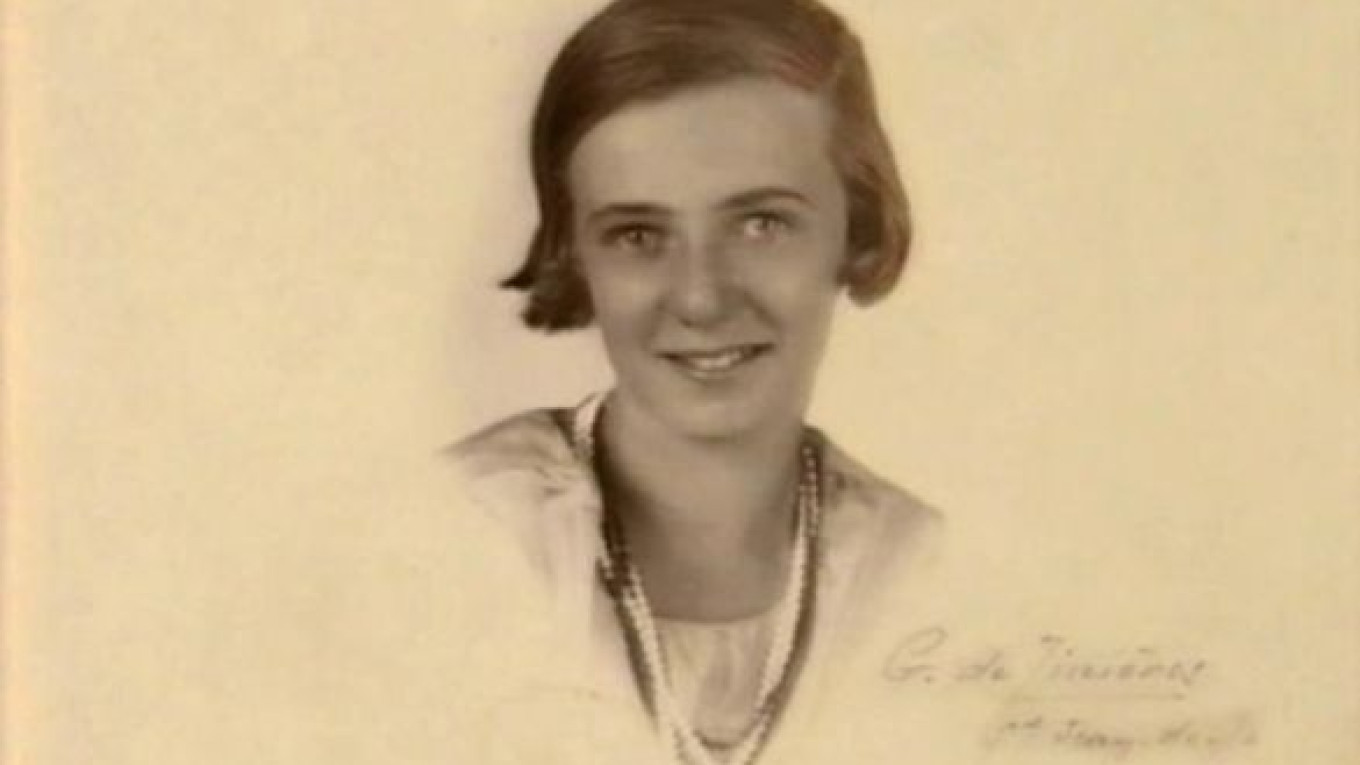ST. PETERSBURG — Russia’s equivalent of the Emmys, the TEFIs, have been marred by scandal as a winning filmmaker accused members of the jury of obstructing his award-winning work and organizers failed to read out the name of one winner, a journalist working for a nongovernmental organization who was once falsely charged with contraband by authorities.
Accusations are still flying this week after a turbulent awards ceremony for the TV Personalities categories of the TEFIs was held at St. Petersburg’s Mikhailovsky Theater on Saturday.
Filmmaker Oleg Dorman, who was awarded a prize for his documentary “Podstrochnik,” or “Translation,” boycotted the awards ceremony, sending the film’s producer, Felix Dekter, instead to read a letter on stage that damned the jury for giving the film a prize years after previously rejecting it.
Dorman’s documentary was a 15-part interview with translator Svetlana Lungina, mother of filmmaker Pavel Lungin. The documentary had been filmed more than a decade before but only made it to the small screen after it was championed by television journalist Leonid Parfyonov.
It was a surprise success in 2009 after being shown in prime time and was repeated and then released in book form, where it became a best seller.
The documentary blends personal drama with reflections on Russia’s stormy 20th-century history. Lungina is brutally honest about Stalin’s repressions and unsparing when talking about people who served the Soviet state in low and dishonest ways.
Dorman pointed out in his letter that some of those on the jury were directly responsible for the fact that “Translation” had not been shown for so long and that those who had formerly gone to such great lengths to stop his film from being screened had no moral right to award a prize for it.
“These people have no respect for audiences; their damaging approach was crucial in turning television into a key factor in the moral catastrophe in Russian society,” Dorman wrote. “Having received extraordinary access to such a powerful instrument as television, its leaders and managers should not dare to treat audiences as some sort of rabble. They have no right to mislead the public and lead them toward degradation by serving viewers large portions of vulgarity, which is exactly what they have been doing.”
Dorman refrained from naming names. “This is a television award, and not a version of the Nuremberg trials,” he wrote. “The point is that everyone connected with it knows what I mean. And a few more people sitting in the audience know as well.”
Dorman had earlier picked out one person, Mikhail Shvydkoi, a former Russian Culture Minister who is the head of the Russian Television Academy that awards the TEFI prizes.
When Shvydkoi wrote an article in state-owned newspaper Rossiiskaya Gazeta praising “Translation,” the director left a bitter comment on the paper’s web site, reminding the culture official of how he had rejected the film outright when Dorman had first contacted him.
The second controversy arose when media and television expert Manana Aslamazyan’s name was not read out even though she had been given a prize for “Outstanding contribution to training television professionals in the regions.”
Aslamazyan is the former head of Internews Russia, an NGO which helped train local journalists. She was arrested in 2007 after mistakenly bringing in too much money into the country and charged with contraband in a case that was seen as a way of putting pressure on the agency. Internews Russia’s offices were raided as part of the contraband case, and in response the agency suspended its work. The Constitutional Court later exonerated her of the charges. She now works in Armenia.
Marianna Maximovskaya, an anchor with the respected “Nedelya” program on Ren-TV and a multiple TEFI winner herself, said the cowardice of the awards’ organizers was despicable.
“Aslamazyan is often affectionately referred to as the mother of regional Russian journalism,” Maximovskaya told reporters. “The decision not to congratulate her publicly will certainly damage the reputation of the awards.”
Shvydkoi said in an interview with Kommersant on Tuesday that her name was not announced as she was not present at the ceremony.
Other winners in the “TV Personalities” category were the news “24” program with Mikhail Osokin on Ren-TV, Maximovskaya and her show “Nedelya” for best news analysis show. The best news anchor award went to Tatyana Limanova, also from Ren-TV.
Yulia Muchnik from Tomsk-based TV-2 took away the prize for best interviewer, while Ivan Urgant, Garik Martirosyan, Alexander Tsekalo and Sergei Svetlakov won best entertainment show presenters for news satire “Prozhektorparishilton” (“Projector Paris Hilton”).
A Message from The Moscow Times:
Dear readers,
We are facing unprecedented challenges. Russia's Prosecutor General's Office has designated The Moscow Times as an "undesirable" organization, criminalizing our work and putting our staff at risk of prosecution. This follows our earlier unjust labeling as a "foreign agent."
These actions are direct attempts to silence independent journalism in Russia. The authorities claim our work "discredits the decisions of the Russian leadership." We see things differently: we strive to provide accurate, unbiased reporting on Russia.
We, the journalists of The Moscow Times, refuse to be silenced. But to continue our work, we need your help.
Your support, no matter how small, makes a world of difference. If you can, please support us monthly starting from just $2. It's quick to set up, and every contribution makes a significant impact.
By supporting The Moscow Times, you're defending open, independent journalism in the face of repression. Thank you for standing with us.
Remind me later.


